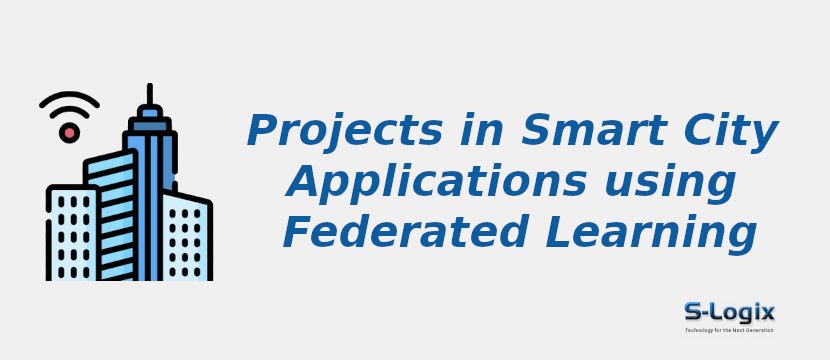Project Background:
The smart city applications using federated learning address the imperative to enhance data-driven decision-making in urban environments while preserving the privacy of sensitive information. Smart cities leverage many Internet of Things (IoT) devices and sensors to collect vast amounts of data, ranging from traffic patterns and air quality to energy consumption and waste management. However, centralizing this data for analysis raises privacy, security, and scalability concerns. Federated learning offers a solution by enabling collaborative model training across distributed edge devices while keeping data local. By decentralizing the learning process, federated learning allows for developing machine learning models to analyze and derive insights from diverse urban datasets without transferring sensitive information to a central server. This approach fosters greater trust among citizens and stakeholders, as it ensures the privacy of personal data and sensitive urban information. Moreover, federated learning empowers cities to address unique challenges such as traffic optimization, pollution reduction, and resource management in a privacy-preserving manner, ultimately leading to more sustainable and efficient urban environments.
Problem Statement
- Ensuring the privacy of sensitive urban data while leveraging it for model training and analysis.
- Addressing the challenge of efficiently handling and analyzing large volumes of data generated by diverse IoT devices and sensors in smart cities.
- Accommodating the diverse data sources and formats in smart city environments, including traffic, weather, energy, and waste management data.
- Providing timely insights and decision-making capabilities by enabling federated learning models to analyze data streams in real time.
- Ensuring that federated learning models generalize well across different urban environments and demographics, enabling broad applicability and effectiveness.
Aim and Objectives
- Utilize federated learning to enhance data-driven decision-making in smart city applications while preserving data privacy.
- Develop federated learning algorithms tailored to the unique challenges of smart city environments.
- Ensure real-time analysis and decision-making capabilities by leveraging federated learning on edge devices.
- Address data privacy concerns by keeping sensitive urban data local and decentralized.
- Enable scalability to handle large volumes of heterogeneous data from diverse IoT devices and sensors.
- Optimize resource utilization and model efficiency to operate effectively in resource-constrained urban environments.
- Foster stakeholder collaboration to leverage federated learning for sustainable and efficient urban management.
Contributions to Smart City Applications using Federated Learning
- Enables timely analysis of IoT data streams for rapid decision-making in smart city operations.
- Efficiently handles large volumes of heterogeneous urban data without centralizing it, ensuring scalability.
-
Optimizes resource usage by distributing computation and storage demands, reducing energy consumption.
- Supports data-driven approaches for traffic management, energy optimization, and environmental monitoring, fostering sustainability.
Deep Learning Algorithms for Smart City Applications
- Convolutional Neural Networks (CNNs)
-
Recurrent Neural Networks (RNNs)
-
Long Short-Term Memory (LSTM) networks
-
Transformer-based models
-
Generative Adversarial Networks (GANs)
-
Autoencoders
-
Variational Autoencoders (VAEs)
-
Graph Convolutional Networks (GCNs)
-
Deep Reinforcement Learning (DRL)
-
Siamese Networks
Datasets for Smart City Applications using Federated Learning
- Urban Traffic Data
-
Air Quality Monitoring Data
-
Energy Consumption Data
-
Waste Management Data
-
Weather Sensor Data
-
Public Transportation Data
-
Pedestrian Traffic Data
-
Water Quality Monitoring Data
-
Smart Grid Data
-
Noise Pollution Data
Software Tools and Technologies
Operating System: Ubuntu 18.04 LTS 64bit / Windows 10
Development Tools: Anaconda3, Spyder 5.0, Jupyter Notebook
Language Version: Python 3.9
Python Libraries:
1.Python ML Libraries:
- Scikit-Learn
- Numpy
- Pandas
- Matplotlib
- Seaborn
- Docker
- MLflow
2.Deep Learning Frameworks:
- Keras
- TensorFlow
- PyTorch
